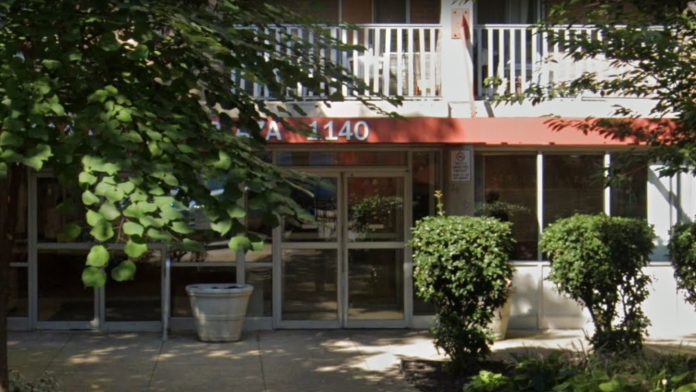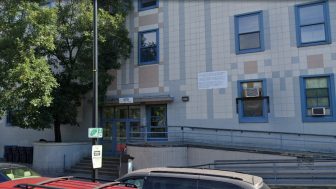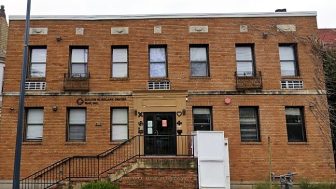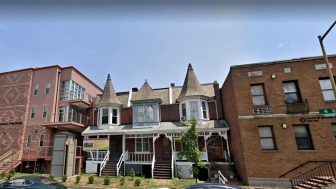Safe Haven Outreach Ministries
1140 North Capitol Street Northwest
Suite 924
Washington, Washington DC 20002

About Safe Haven Outreach Ministries
In our nation’s capital of Washington, D.C., you can find a number of museums and government buildings. The city is also where you’ll find Safe Haven Outreach Ministries, which offers addiction treatment for low income adults with substance use disorder who are also living with HIV/AIDS or co-occurring mental health disorders. They also provide transitional housing.
Residential Treatment Services in Washington, D.C.
The residential program at Safe Haven is 28 days long with the potential to extend it an additional 14 days. Services include psychological and risk assessments, individual, group and family counseling, and mental health treatment and medication.
Topics they cover in treatment include substance use education, anger management and stress reduction. I like how they help with conflict resolution and other essential life skills.
Residents also get nutrition and wellness education, access to 12 step groups and various recreation options.
Long Term Transitional Housing
For those who have finished a primary treatment program of 28 to 60+ days, Safe Haven offers multiple housing options. They specifically focus on serving the homeless and those recently released from jail or prison.
They have long term group living houses as well as transitional apartment options. We’re impressed that they assist clients with permanent housing. As part of the housing program, the Safe Haven staff will connect you to appropriate community resources and social services.
Many transitional housing programs have specific rules, such as curfew, mandatory meetings and attendance at recovery support groups. Be sure to understand the rules for the specific Safe Haven program you’re in.
Amenities
Residential drug rehab provides the comforts of home with the therapeutic support needed to successfully recover. Benefits of an inpatient program include increased safety, a higher success rate, and the time and distance given to focus on recovery. Residential drug rehabs are often the preferred method of treatment, as they can be tailored to meet specific needs, offer focused therapeutic care, and provide the necessary tools to sustain recovery.
Addiction Treatment Programs
Young adults face a lot of uncertainty and pressure as they transition to fully independent living. Young adult rehabs in Washington, DC, can help them address these concerns in healthy ways, develop practical coping skills, and learn essential life skills so they can overcome addiction and live a substance-free lifestyle.
Adults who have substance use disorders have often been through a lot — trauma, getting and losing jobs, having and losing housing, and more. In Washington, DC, an adult rehab can help you focus on these experiences and learn to process and manage them without turning to substance use.
Assertive Community Treatment (ACT) is an integrative, community-based care strategy designed to address the needs of persons with severe and/or complex mental illness or behavioral disorders. ACT is typically provided by a multidisciplinary team of medical and mental health care providers, social workers, therapists, and other specialists, including addiction recovery professionals. These services are frequently provided in the home and community to clients in crisis, those who are clinically unstable, and those who are unable or unwilling to travel to a hospital or clinic for in-person treatment.
A men’s rehab in Washington, DC, addresses mental and emotional concerns that are common to men, which might include sharing emotions, vulnerability, anger management, and trauma. Addressing these unique issues in a community with other men can help participants heal and develop healthy coping mechanisms so they don’t need to turn to substance use.
Women experience life differently than men, so having a specific women’s rehab can be helpful. A women’s rehab in Washington, DC, can address pregnancy concerns, mothering skills, and the unique experiences women have that might lead to substance use, leading to a more effective treatment experience.
Cognitive Behavioral Therapy in Washington, DC, allows people to address unhelpful ways of thinking and behaving by challenging their thinking patterns. This allows participants to overcome thinking distortions and develop better coping skills so they can move away from substance use.
In Washington, DC, drug rehab treatment addresses the physical, emotional, and mental elements of addiction. You’ll learn why you turn to substance use, how you can address those issues in healthier ways, how to handle cravings, how to create a support network and have fun without substances, and much more.
Moral Reconation Therapy (MRT) is a form of psychotherapy commonly used in addiction recovery. Based on cognitive behavioral therapy (CBT), moral reconation therapy (MRT) helps clients recognize unhealthy and/or harmful thought patterns and to replace them with more positive and productive ones. MRT is designed to empower clients to make healthier life choices and to more effectively align their behaviors with their moral values.
Rational Behavior Therapy (RBT) is a proven psychotherapeutic modality frequently used in addiction recovery programs across Washington DC. RBT enables clients to identify unhealthy thought patterns that may contribute to or exacerbate addictive behaviors. Clients learn to challenge and replace false or harmful beliefs with more affirming and productive cognitive schemas, allowing them to effectively regulate their emotions, address past traumas, manage addiction triggers, and make better behavioral choices.
Levels of Care
Intervention services in Washington DC are designed to educate and support the friends and family members of a person experiencing substance use disorder (SUD), typically requiring them to engage the individual in a frank conversation, guided by a professional, such as an addiction specialist or psychotherapist, about how the person’s substance misuse has impacted themselves and those around them. The approach is predicated on the idea that persons will not consent to treatment until they can acknowledge the existence of the addiction. Crisis interventions are designed for individuals whose addiction poses an imminent risk of harm to themselves or others and is intended to culminate in the client’s immediate admission to rehab. These services also typically include planning for transportation and admission to a rehab facility.
Dual diagnosis care in Washington DC is a specialized, multi-pronged approach to addiction recovery tailored to the unique care needs of persons with co-occurring addiction and mental illness. Dual diagnosis care is predicated on the assumption that lasting recovery can only be achieved if the underlying mental health conditions that contribute to or exacerbate the addiction are also addressed. The dual diagnosis care model typically integrates extensive psychotherapy, recovery education, and pharmacotherapy, if appropriate.
Inpatient rehabs in Washington DC provide the highest levels of care for clients in early recovery and/or those at an elevated risk of relapse. Inpatient rehab enables clients to reside onsite and focus exclusively on their recovery in a highly structured and supportive environment featuring robust supervision. Typical inpatient services include psychotherapy, recovery-focused life skills training, and complementary therapies; medical detox may also be provided.
Detox treatment in Washington DC is designed to rid the client’s body of alcohol and/or drugs in a safe and supportive environment. Medical detox involves intensive clinical supervision in either an inpatient or outpatient setting and may include the prescribing of FDA-approved medications to ease withdrawal symptoms and prevent potentially serious complications. Social detox is a process of managing substance withdrawal without medical intervention and typically includes mental health support, rest, and therapeutic nutrition and hydration.
In Washington DC, aftercare support is designed to provide a complete continuum of care for clients who have completed formal addiction treatment. Aftercare support is intended to reduce clients’ risk of relapse through a range of services tailored to clients’ evolving needs. Aftercare programs may include alumni support groups, ongoing recovery education, housing and employment assistance, 12 Step Program facilitation, vocational training and career counseling, and referrals for continuing care and other services.
Accreditations
Contact Information
1140 North Capitol Street Northwest
Suite 924
Washington, Washington DC 20002
Nearby Treatment Centers

425 2nd Street Northwest
Washington, Washington DC 20001

1949 4th St NE
Washington, Washington DC 20002

1949 4th Street Northeast
Ward 5
Washington, Washington DC 20002

64 New York Ave NW
Washington, Washington DC 20002